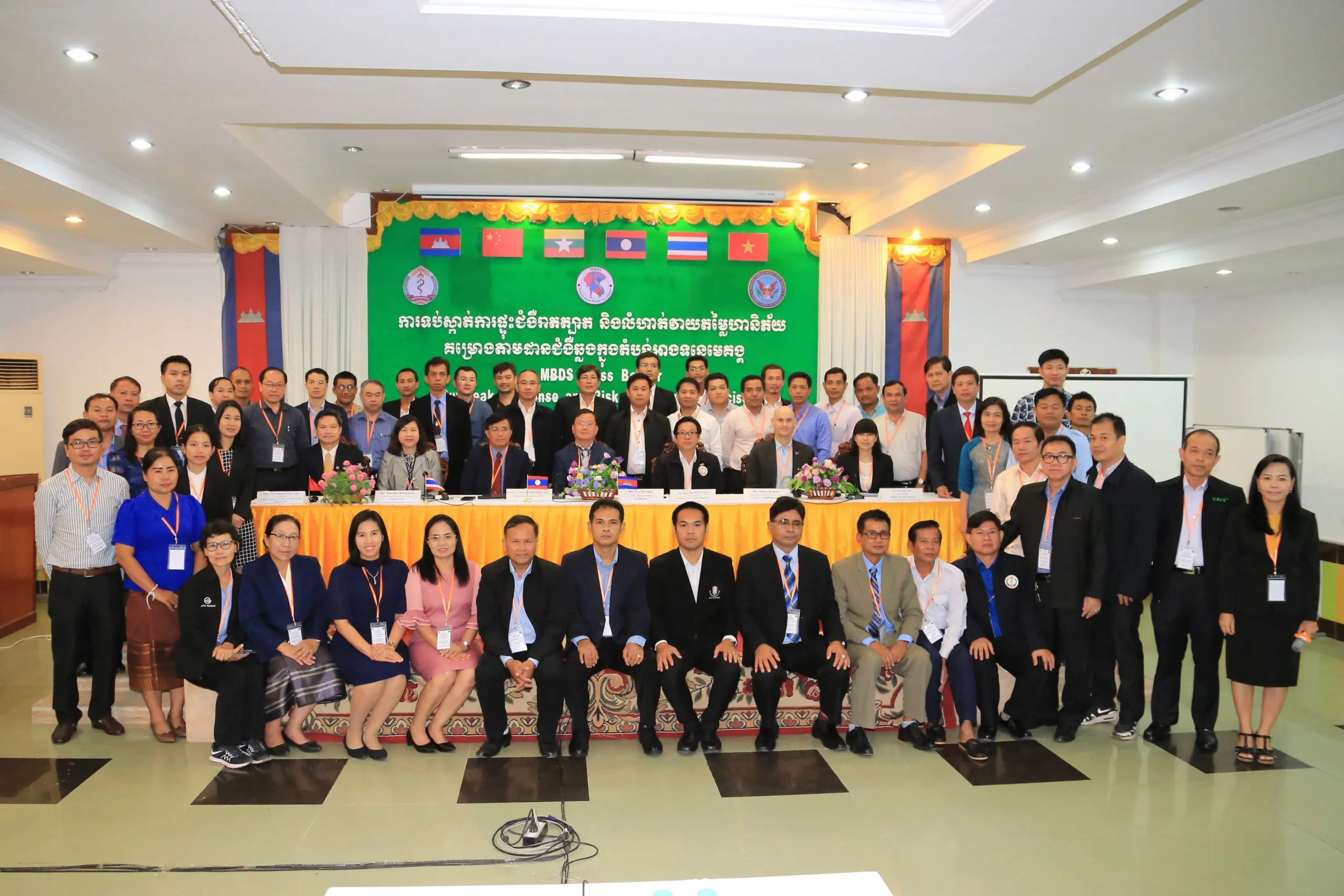About Us
The MBDS (Mekong Basin Disease Surveillance) cooperation is a self-organized regional network commenced since 2001. MBDS cooperation is a collaboration effort among six Mekong Basin countries: Cambodia, China, Lao P.D.R, Myanmar, Thailand and Vietnam under the Health Ministerial MOU.
MBDS aims to strengthen national and regional capabilities in infectious disease surveillance, inter-regional collaboration, outbreak response and information sharing to rapidly and effectively control public health threats.

Our Vision
Reduce the spread and impact of outbreak-prone diseases including public health emergency of international concern (PHEIC), and serve as a model for regional cooperation.
Our Mission
- Strengthen sustainable national core capacities and regional cooperation in public health threats and information sharing, outbreak investigation and response for priority diseases and PHEIC in order that they can be rapidly and effectively controlled (consistent with IHR 2005).
- Rationalize cross border information and communications technologies (ICT) capacity, and risk communication to support disease surveillance activities.
- Provide essential information for the development of health and social policy to reduce the burden arising from these priority diseases, and develop indicators for monitoring progress.
- Strengthen partnerships with existing cooperation mechanisms, maintain and enhance multi-sectoral collaboration based on
- Communication, collaboration and coordination among member countries for public health emergency preparedness and response.
Our Goals
- Strengthen sustainable national core capacities and Sub-regional cooperation in disease surveillance and information sharing, outbreak investigation and response for priority diseases and PHEIC in order that they can be rapidly and effectively controlled (consistent with IHR 2005).
- Provide essential information for the development of health and social policy to reduce the burden arising from these priority diseases.
- Strengthen partnerships with other existing cooperation mechanisms.







